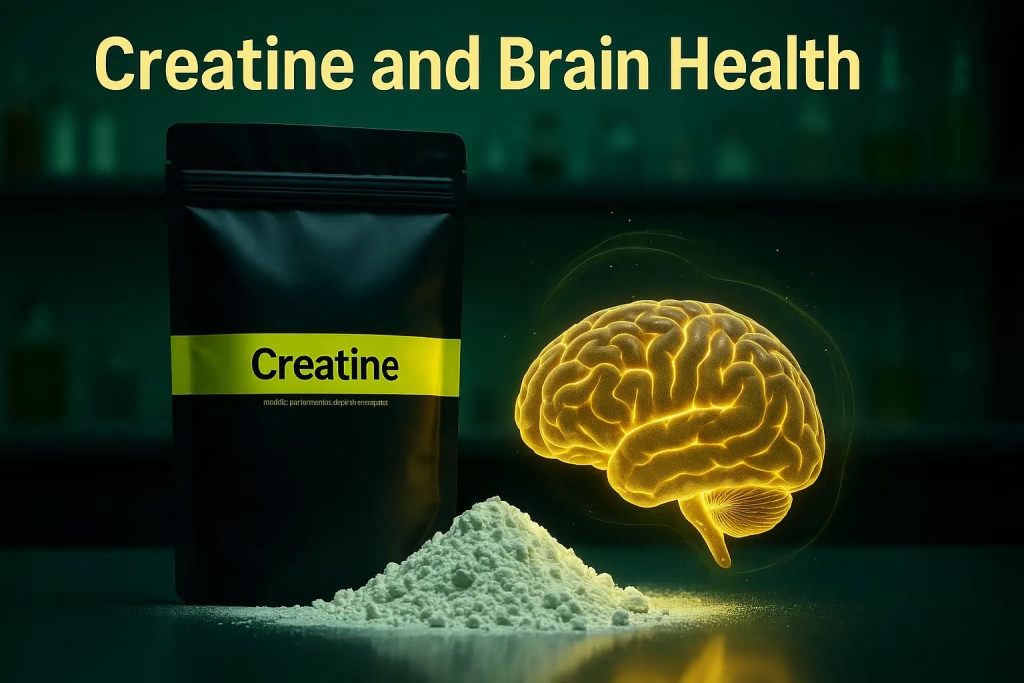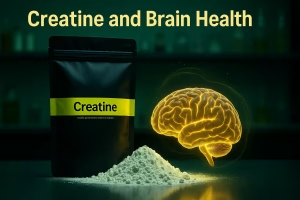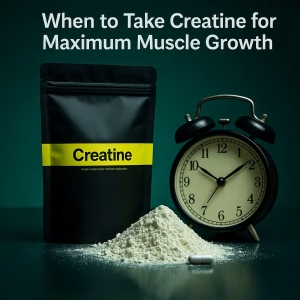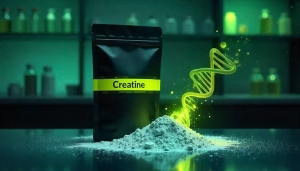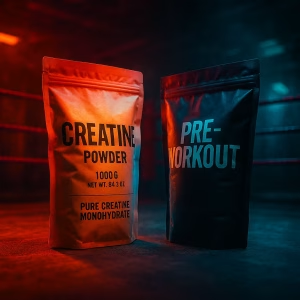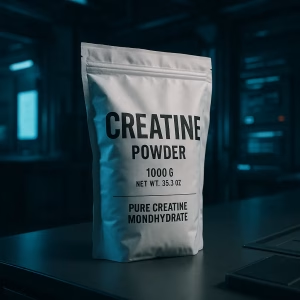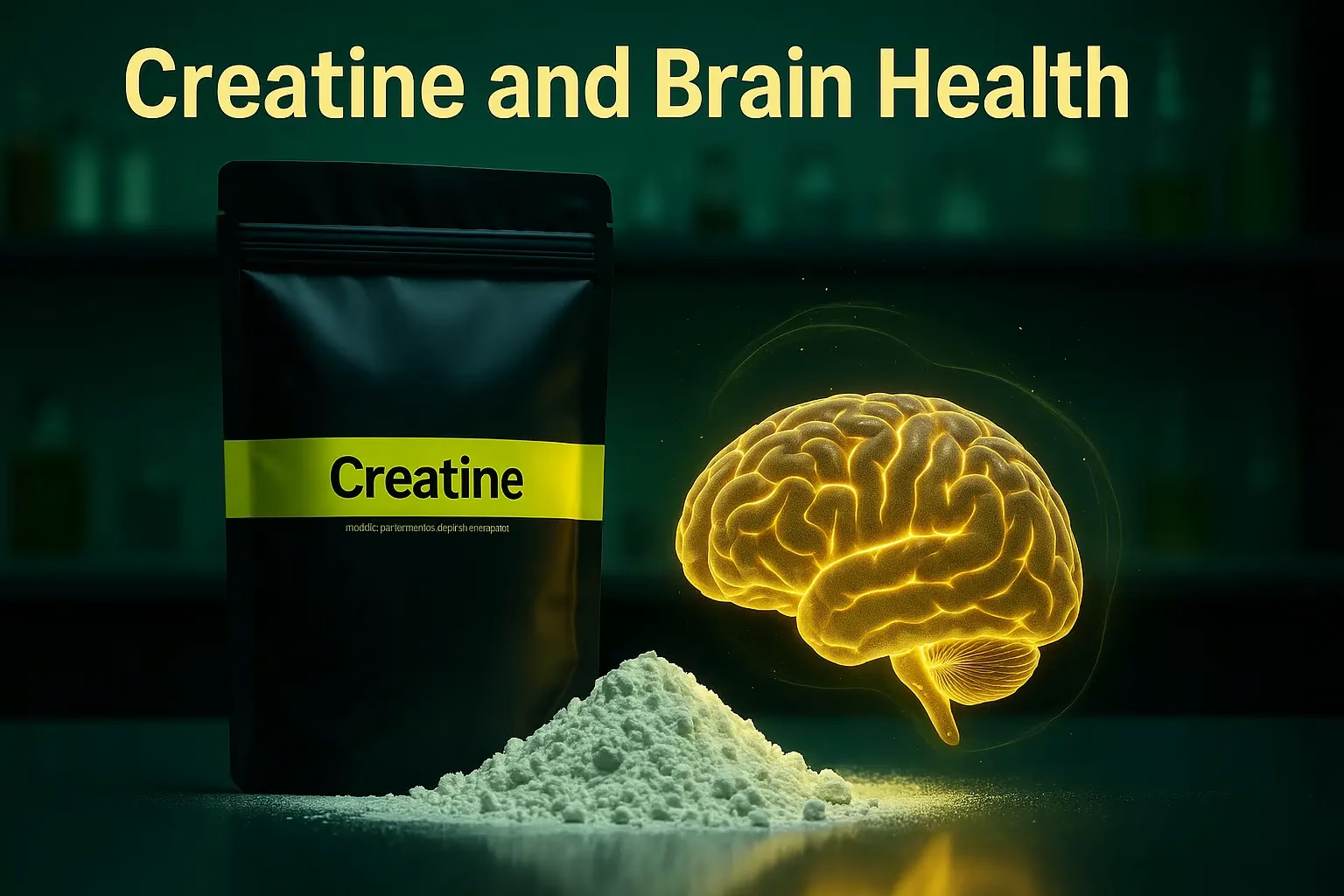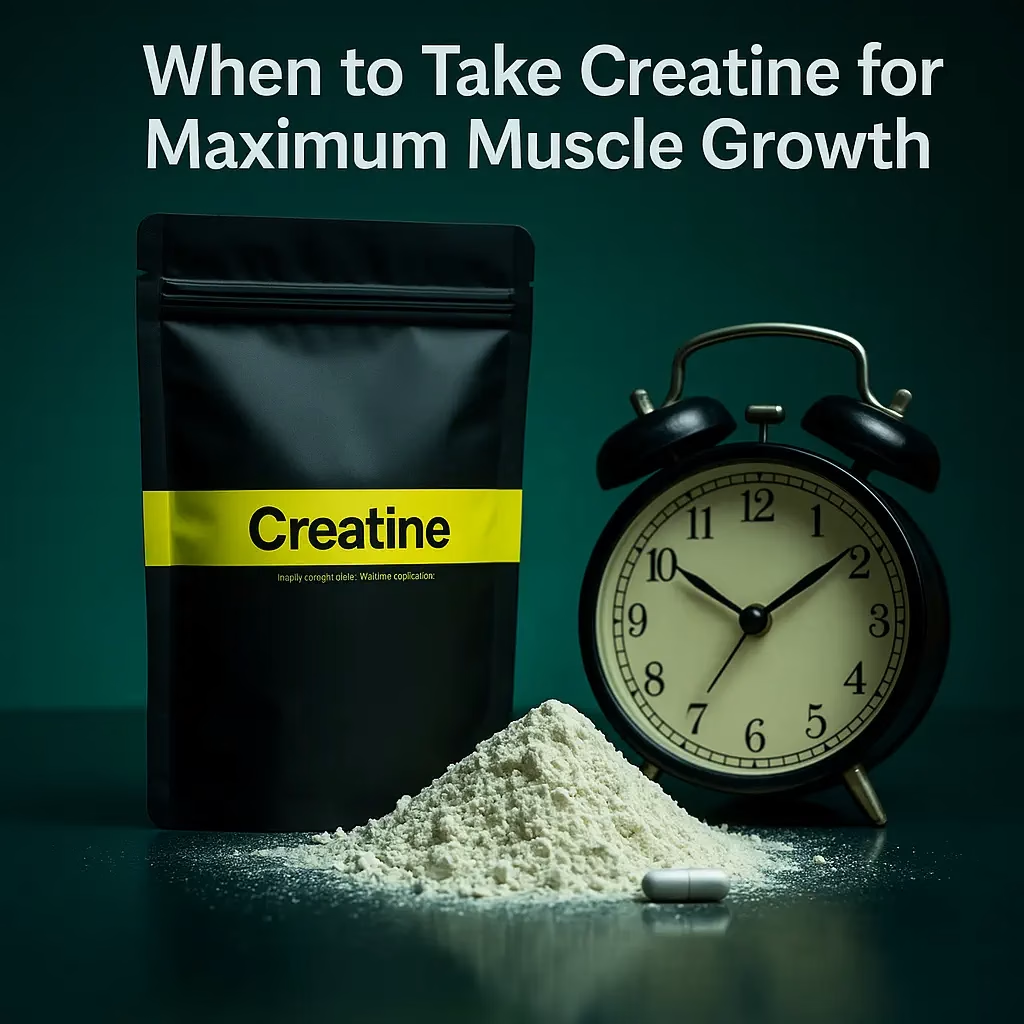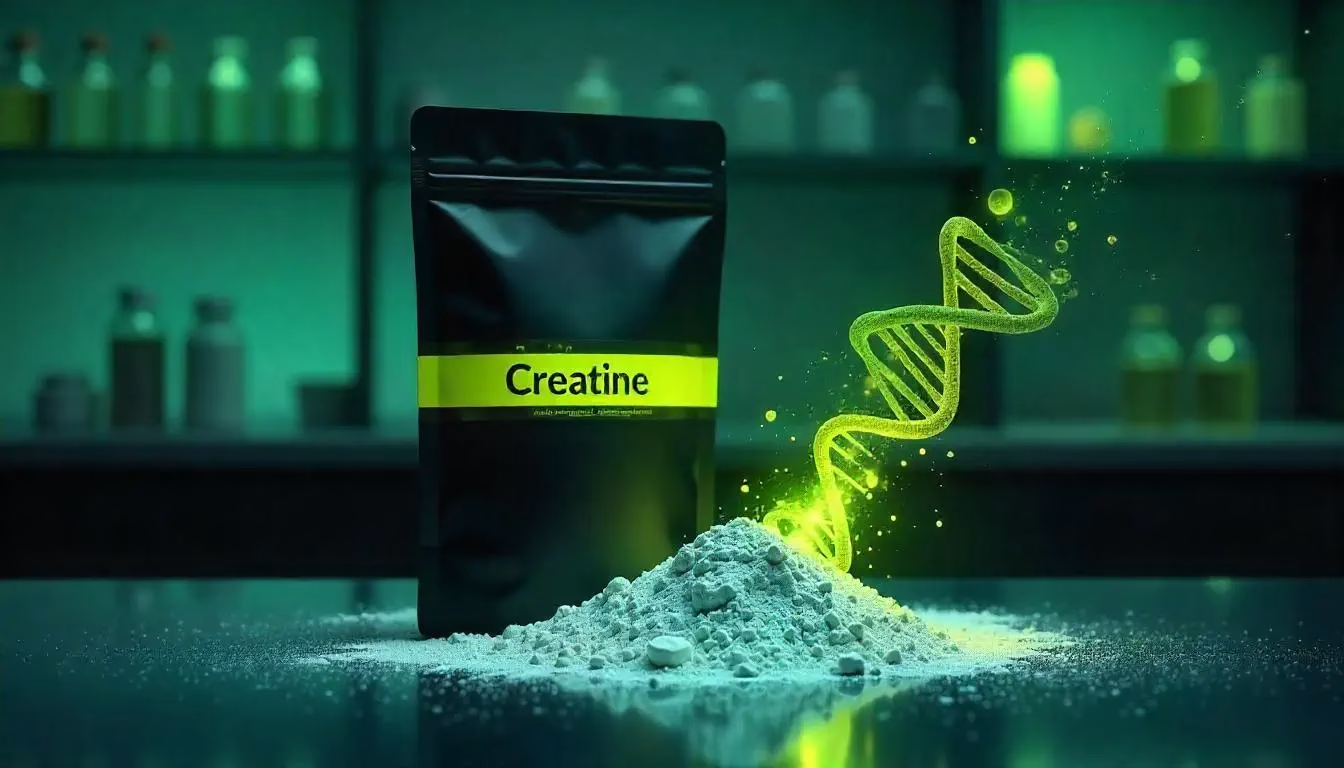Your brain consumes 20% of your body’s total energy despite representing only 2% of your body weight. This massive energy demand makes cognitive performance highly dependent on efficient ATP production—the same cellular energy system that creatine optimizes in your muscles.
Creatine for Brain Health and Cognitive Performance represents one of the most underexplored applications of this extensively researched supplement. While athletes have leveraged creatine’s muscle benefits for decades, emerging neuroscience reveals profound implications for memory enhancement, mental clarity, neuroprotection, and cognitive resilience under stress.
Recent breakthrough research demonstrates that creatine supplementation can enhance working memory by up to 25%, improve processing speed during mental fatigue, and provide significant neuroprotective benefits against age-related cognitive decline. This knowledge proves particularly valuable for high-performing professionals, students facing academic demands, aging adults concerned about cognitive health, and biohackers exploring the frontiers of mental optimization.
What You Are About to Learn
- The neurological mechanisms by which creatine enhances brain energy metabolism and cognitive function
- Evidence-based protocols for optimizing mental performance, memory, and focus through strategic supplementation
- Neuroprotective benefits that may reduce risk of cognitive decline and neurodegenerative diseases
- Specific cognitive domains where creatine shows the strongest enhancement effects and practical applications
- Safety considerations and optimal dosing strategies specifically for cognitive rather than athletic benefits
- Integration strategies with other nootropics and lifestyle factors for comprehensive brain optimization
The Brain’s Energy Crisis and Creatine’s Solution
Understanding Neuronal Energy Demands
Brain tissue demonstrates the highest energy requirements of any organ system, with neurons requiring constant ATP availability for neurotransmitter synthesis, synaptic transmission, and cellular maintenance. Unlike muscle tissue, brain cells cannot store significant energy reserves, making them vulnerable to fluctuations in energy availability.
The brain’s energy systems operate differently from skeletal muscle:
- Continuous demand: No rest periods like muscle tissue experiences
- Regional variations: Different brain areas have varying energy requirements
- Metabolic inflexibility: Limited ability to switch between energy substrates
- Vulnerability to depletion: Cognitive function declines rapidly when energy availability decreases
Creatine’s role in brain energy metabolism involves the same phosphocreatine system that powers muscle contractions, but with unique neurological applications. The brain contains specific creatine kinase isoforms (primarily BB-CK and mitochondrial CK) that maintain energy homeostasis in neural tissue.
Creatine Transport Across the Blood-Brain Barrier
The blood-brain barrier presents a selective filtration system that limits which substances can enter brain tissue. Creatine crosses this barrier through specific transporters (CreaT1), though less efficiently than in muscle tissue.
Transport characteristics include:
- Selective permeability: Only 5-10% of circulating creatine enters brain tissue
- Transporter saturation: Higher doses don’t necessarily increase brain uptake proportionally
- Regional differences: Certain brain areas show higher creatine concentrations
- Age-related changes: Transport efficiency may decline with aging
Optimization strategies for enhanced brain uptake:
- Consistent daily dosing to maintain saturated transporters
- Longer supplementation periods (8-12 weeks) for maximal brain accumulation
- Combination with compounds that may enhance transport efficiency
- Timing considerations for cognitive vs. physical benefits
This transport limitation explains why cognitive benefits often require longer supplementation periods than muscle performance improvements.
Cognitive Domains Enhanced by Creatine
Working Memory and Information Processing
Working memory represents the cognitive system responsible for temporarily holding and manipulating information during complex mental tasks. Research consistently demonstrates that creatine supplementation can enhance working memory capacity and processing speed.
Landmark studies reveal significant improvements:
- 25% enhancement in working memory tasks after 6 weeks of supplementation
- Improved processing speed during cognitively demanding activities
- Better performance under mental fatigue conditions
- Enhanced dual-task coordination abilities
Mechanisms underlying these improvements include:
- Increased ATP availability for neurotransmitter synthesis
- Enhanced synaptic efficiency through improved energy metabolism
- Better maintenance of neural firing rates during prolonged cognitive tasks
- Reduced metabolic stress during high-demand mental activities
Practical applications for working memory enhancement:
- Students preparing for examinations requiring information retention
- Professionals managing complex projects with multiple variables
- Older adults experiencing mild cognitive decline
- Anyone performing mentally demanding tasks under time pressure
Executive Function and Decision-Making
Executive function encompasses higher-order cognitive processes including planning, problem-solving, cognitive flexibility, and inhibitory control. Creatine’s energy support appears particularly beneficial for these metabolically demanding cognitive processes.
Research findings demonstrate improvements in:
- Complex problem-solving tasks requiring sustained mental effort
- Cognitive flexibility when switching between different mental frameworks
- Decision-making speed without compromising accuracy
- Inhibitory control under stress or fatigue conditions
Professional applications include:
- Business executives making high-stakes decisions
- Healthcare professionals requiring sustained cognitive performance
- Air traffic controllers and other safety-critical occupations
- Emergency responders operating under cognitive stress
Attention and Focus Enhancement
Sustained attention and selective focus represent fundamental cognitive abilities that decline under fatigue, stress, or aging. Creatine supplementation shows promise for maintaining attention quality during extended mental demands.
Attention-related benefits include:
- Reduced mind-wandering during focused tasks
- Enhanced selective attention in distracting environments
- Improved sustained attention over extended periods
- Better attentional switching between different cognitive demands
Mechanisms supporting attention enhancement:
- Stabilized neural firing patterns in attention-related brain regions
- Improved energy availability in prefrontal cortex areas
- Enhanced neurotransmitter function supporting attention networks
- Reduced neural fatigue during prolonged attention demands
Neuroprotective Benefits and Brain Health
Protection Against Cognitive Decline
Age-related cognitive decline affects multiple domains including memory, processing speed, and executive function. Creatine’s neuroprotective properties may help maintain cognitive function and reduce the risk of neurodegenerative diseases.
Neuroprotective mechanisms include:
- Mitochondrial support: Enhanced cellular energy production and reduced oxidative stress
- Calcium homeostasis: Improved cellular calcium regulation preventing excitotoxicity
- Membrane stability: Protection of neural membrane integrity and function
- Anti-inflammatory effects: Reduced neuroinflammation associated with cognitive decline
Research evidence for neuroprotection:
- Improved cognitive performance in older adults with mild cognitive impairment
- Reduced markers of neural damage in animal models of neurodegeneration
- Enhanced recovery from traumatic brain injury in preliminary studies
- Potential protective effects against Alzheimer’s and Parkinson’s diseases
Stress Resilience and Mental Fatigue
Chronic stress and mental fatigue significantly impair cognitive performance through energy depletion and neurochemical imbalances. Creatine supplementation may enhance cognitive resilience under stressful conditions.
Stress-related cognitive benefits:
- Maintained performance under sleep deprivation conditions
- Improved cognitive function during high-stress situations
- Faster recovery from mental fatigue
- Enhanced mood stability under cognitive stress
Applications for stress management:
- Medical residents working extended shifts
- Students during examination periods
- Professionals in high-pressure environments
- Individuals recovering from traumatic brain injuries
Evidence-Based Dosing for Cognitive Benefits
Optimal Dosing Protocols for Brain Health
Cognitive benefits often require different dosing strategies than muscle performance enhancement due to slower brain uptake and accumulation. Research suggests that brain creatine levels increase gradually over 8-12 weeks of consistent supplementation.
Standard cognitive protocol:
- Loading phase: Optional 20g daily for 5-7 days to accelerate brain uptake
- Maintenance dose: 3-5g daily for sustained cognitive benefits
- Duration: Minimum 8-12 weeks for maximal brain creatine accumulation
- Timing: Consistent daily dosing more important than specific timing
Alternative gentle loading:
- Extended approach: 5-7g daily for 4-6 weeks without initial loading
- Benefits: Reduced gastrointestinal side effects while achieving brain saturation
- Considerations: Slower onset but equivalent final brain creatine levels
Age-Specific Considerations
Older adults may experience enhanced cognitive benefits from creatine supplementation due to naturally declining creatine synthesis and brain energy metabolism. Age-related changes in creatine transport and utilization may require modified protocols.
Considerations for adults over 50:
- Lower starting dose: Begin with 3g daily to assess tolerance
- Extended loading: Use 6-8 week gentle loading approach
- Medical supervision: Consult healthcare providers, especially with existing conditions
- Hydration emphasis: Older adults may require enhanced hydration protocols
Young adults and students:
- Standard protocols: Can typically handle full loading and maintenance doses
- Timing optimization: May benefit from consistent morning dosing
- Academic cycling: Consider supplementation during high-demand academic periods
- Combination strategies: May combine with other nootropics under professional guidance
Safety Profile for Cognitive Applications
Neurological Safety Considerations
Brain-specific safety research demonstrates that creatine supplementation shows excellent tolerability for neurological applications. Long-term studies indicate no adverse cognitive effects from extended creatine use.
Safety evidence includes:
- No tolerance development: Cognitive benefits maintain without requiring dose increases
- No withdrawal effects: Discontinuation doesn’t cause cognitive rebound effects
- Excellent tolerability: Minimal neurological side effects in healthy populations
- Long-term safety: Studies up to 5 years show no adverse cognitive outcomes
Contraindications for cognitive use:
- Active kidney disease requiring medical clearance
- Bipolar disorder during manic phases (may enhance energy states)
- Pregnancy and breastfeeding pending additional safety research
- Certain medications affecting creatine metabolism
Monitoring and Optimization
Cognitive response assessment requires different metrics than athletic performance monitoring. Track subjective cognitive improvements alongside objective performance measures.
Assessment strategies:
- Cognitive testing: Use validated tests for working memory, attention, and processing speed
- Subjective measures: Monitor mental clarity, focus, and fatigue resistance
- Academic/professional performance: Track work productivity and learning efficiency
- Sleep quality: Monitor sleep patterns as they interact with cognitive function
Professional guidance* becomes particularly important for cognitive applications due to individual variations in response and potential interactions with medications or health conditions.
Integration with Nootropic Stacks
Synergistic Combinations for Enhanced Cognitive Performance
Creatine forms the energetic foundation for nootropic stacks by providing reliable ATP support for other cognitive enhancers. Strategic combinations can amplify cognitive benefits while maintaining safety.
Evidence-based combinations:
- Creatine + Caffeine: Enhanced alertness with sustained energy support
- Creatine + L-Theanine: Improved focus without caffeine-related anxiety
- Creatine + Bacopa Monnieri: Memory enhancement with neuroprotective synergy
- Creatine + Lion’s Mane: Cognitive support with neuroplasticity enhancement
Combination protocols:
- Start with creatine alone for 4-6 weeks to establish baseline response
- Add one additional compound at a time to assess individual contributions
- Monitor for interactions or reduced effectiveness
- Maintain creatine as the consistent foundation of any nootropic protocol
Lifestyle Integration for Maximum Cognitive Benefits
Creatine’s cognitive effects are enhanced by complementary lifestyle factors that support brain health and energy metabolism. Integrated approaches produce superior results compared to supplementation alone.
Synergistic lifestyle factors:
- Quality sleep: 7-9 hours nightly for optimal cognitive function and creatine utilization
- Regular exercise: Physical activity enhances brain blood flow and creatine transport
- Stress management: Meditation and stress reduction preserve cognitive energy reserves
- Nutrition optimization: Adequate protein and healthy fats support neurotransmitter synthesis
Daily optimization protocol:
- Morning creatine with healthy breakfast for sustained cognitive energy
- Regular physical activity to enhance brain blood flow and utilization
- Stress management practices to preserve cognitive reserves
- Consistent sleep schedule to support cognitive recovery and creatine effectiveness
Common Misconceptions and Mistakes Regarding Cognitive Applications
Misconception 1: “Cognitive Benefits Appear as Quickly as Muscle Benefits”
The mistake: Expecting immediate cognitive improvements similar to rapid muscle performance gains. Brain creatine accumulation occurs much slower than muscle saturation, requiring patience for cognitive benefits.
Reality: Cognitive improvements typically emerge after 4-8 weeks of consistent supplementation, with maximal benefits requiring 8-12 weeks. The brain’s selective creatine transport and lower baseline levels necessitate extended supplementation periods.
Misconception 2: “Higher Doses Produce Better Cognitive Effects”
The mistake: Assuming that larger doses will accelerate or enhance cognitive benefits. Brain creatine transporters saturate at specific levels, making excessive dosing ineffective and potentially problematic.
Reality: Standard doses of 3-5 grams daily provide optimal cognitive benefits, with higher doses offering no additional advantage. Focus on consistency and duration rather than dose escalation for cognitive applications.
Misconception 3: “Creatine Only Benefits Physical Performance, Not Mental Performance”
The mistake: Believing creatine’s benefits are limited to muscle function without recognizing its neurological applications. This outdated view ignores substantial research on creatine’s cognitive effects.
Reality: Creatine provides significant cognitive benefits through the same energy mechanisms that enhance muscle performance. The brain’s high energy demands make it particularly responsive to creatine’s ATP-supporting effects.
Misconception 4: “Cognitive Benefits Are Placebo Effects”
The mistake: Dismissing creatine’s cognitive effects as subjective or placebo-driven rather than physiologically based. Skepticism about cognitive supplementation can lead to overlooking legitimate benefits.
Reality: Controlled studies using objective cognitive assessments demonstrate measurable improvements in working memory, processing speed, and mental fatigue resistance. These benefits have clear neurobiological mechanisms and reproducible research evidence.
Misconception 5: “Creatine Supplementation Will Make You Feel Hyper or Jittery”
The mistake: Confusing creatine’s energy support with stimulant-like effects that produce jitteriness or hyperactivity. This confusion often stems from associating creatine with pre-workout stimulant formulas.
Reality: Creatine provides calm, sustained energy support without stimulant effects. Cognitive benefits typically manifest as improved clarity and reduced mental fatigue rather than noticeable energy surges.
Pro Tip: Approach cognitive applications with realistic expectations and consistent implementation—cognitive benefits require patience but provide sustainable, long-term improvements in mental performance.
Supplementation FAQs: Cognitive Enhancement Edition
Q1: How long does it take to notice cognitive improvements from creatine supplementation?
Answer: Cognitive benefits from creatine typically emerge after 4-8 weeks of consistent supplementation, with maximum effects occurring around 8-12 weeks. Unlike muscle performance improvements that may appear within days, brain creatine accumulation occurs gradually due to limited transport across the blood-brain barrier. Some individuals report subtle improvements in mental clarity and reduced cognitive fatigue within 2-3 weeks, but measurable enhancements in working memory and processing speed usually require longer supplementation periods. Factors affecting timeline include baseline cognitive function, age, stress levels, and overall brain health. Document your cognitive performance weekly to track gradual improvements that may not be immediately obvious.
Q2: Can creatine help with age-related memory problems or mild cognitive decline?
Answer: Research suggests creatine supplementation may provide meaningful benefits for age-related cognitive changes and mild cognitive decline. Studies in older adults demonstrate improvements in working memory, processing speed, and overall cognitive function, particularly in individuals experiencing mild cognitive impairment. The neuroprotective mechanisms include enhanced mitochondrial function, reduced oxidative stress, and improved cellular energy metabolism in brain tissue. However, creatine is not a treatment for dementia or Alzheimer’s disease, and individuals with significant cognitive concerns should consult healthcare professionals. For healthy aging adults, creatine may help maintain cognitive function and potentially slow age-related decline when combined with other brain-healthy lifestyle practices.
Q3: Is there a difference between creatine dosing for cognitive benefits versus athletic performance?
Answer: Cognitive applications typically use the same 3-5 gram daily maintenance dose as athletic protocols, but timing and expectations differ significantly. While athletes may use strategic timing around workouts, cognitive benefits require consistent daily dosing regardless of mental task timing. Loading phases are optional for cognitive applications, with many practitioners preferring gentle loading (5-7 grams daily for 4-6 weeks) to minimize gastrointestinal effects while achieving brain saturation. The key difference lies in duration expectations—cognitive benefits require 8-12 weeks for maximum effect versus 1-2 weeks for muscle performance. Consistency matters more than timing for cognitive applications, making creatine supplementation more straightforward for mental performance goals.
Q4: Can I combine creatine with other nootropics or cognitive supplements?
Answer: Creatine combines well with many nootropics and can serve as an excellent foundation for cognitive enhancement stacks. Its energy-supporting mechanism complements rather than competes with other cognitive enhancers like L-theanine, bacopa monnieri, or lion’s mane mushroom. Start with creatine alone for 4-6 weeks to establish baseline cognitive response before adding other compounds. Avoid combining with excessive stimulants that may cause jitteriness or interfere with sleep quality. Common successful combinations include creatine with moderate caffeine for alertness, or with adaptogenic herbs for stress management. Always introduce one new supplement at a time to assess individual effects and potential interactions. Consult healthcare professionals when combining multiple supplements, especially if taking medications.
Q5: Will creatine supplementation affect my sleep or cause restlessness?
Answer: Creatine typically does not cause sleep disturbances or restlessness when used appropriately for cognitive enhancement. Unlike stimulants, creatine provides sustained energy support without directly affecting arousal or sleep cycles. Some individuals report improved sleep quality due to better stress management and reduced mental fatigue throughout the day. However, taking creatine late in the evening might cause mild alertness in sensitive individuals, though this is uncommon. For optimal results, maintain consistent daily timing (morning with breakfast is popular) rather than varying consumption times. If you experience any sleep changes after starting creatine, consider adjusting timing to earlier in the day or reducing the dose slightly. Quality sleep remains crucial for maximizing creatine’s cognitive benefits.
Q6: Are there any specific populations who should avoid creatine for cognitive purposes?
Answer: Most healthy adults can safely use creatine for cognitive enhancement, but certain populations require caution or medical supervision. Individuals with kidney disease should avoid creatine supplementation due to potential effects on kidney function markers. People with bipolar disorder should exercise caution, particularly during manic phases, as creatine’s energy-enhancing effects might exacerbate manic symptoms. Pregnant and breastfeeding women should avoid creatine pending additional safety research specific to these populations. Those taking medications affecting kidney function or creatine metabolism should consult healthcare providers before supplementation. Adolescents under 18 should only use creatine under medical supervision. Individuals with severe cognitive impairment or dementia should seek professional medical guidance rather than self-supplementing.
Emerging Research and Future Applications
Therapeutic Applications in Neurological Conditions
Clinical research is exploring creatine’s potential therapeutic applications for various neurological and psychiatric conditions. Preliminary studies suggest benefits for depression, traumatic brain injury, and neurodegenerative diseases.
Promising therapeutic areas:
- Treatment-resistant depression: Enhanced energy metabolism may support antidepressant efficacy
- Traumatic brain injury: Neuroprotective effects during recovery phases
- Parkinson’s disease: Mitochondrial support for dopaminergic neurons
- Huntington’s disease: Cellular energy support in genetic neurodegeneration
Research limitations and considerations:
- Most therapeutic research remains in early stages
- Optimal dosing for medical conditions may differ from cognitive enhancement
- Medical supervision essential for therapeutic applications
- Individual responses vary significantly in clinical populations
Precision Cognitive Enhancement
Future applications may involve personalized creatine protocols based on genetic testing, brain imaging, and cognitive assessment profiles. Understanding individual variations in creatine transport and utilization could optimize cognitive benefits.
Emerging personalization factors:
- Genetic polymorphisms affecting creatine transport and metabolism
- Brain imaging to assess regional creatine concentrations
- Cognitive testing to identify specific enhancement targets
- Biomarker monitoring for optimization feedback
Technology integration:
- Wearable devices monitoring cognitive performance metrics
- AI-driven protocol optimization based on individual response patterns
- Integration with brain training applications for enhanced neuroplasticity
- Real-time feedback systems for dosing and timing optimization
Pro Tip: Stay informed about emerging research while focusing on proven protocols—current evidence-based approaches provide significant cognitive benefits while research continues to expand applications.
Conclusion: Optimizing Brain Health Through Strategic Creatine Use
Creatine for Brain Health and Cognitive Performance represents a paradigm shift from viewing this supplement purely as an athletic performance enhancer to recognizing its profound implications for mental optimization and neuroprotection. The evidence demonstrates that strategic creatine supplementation can enhance working memory, processing speed, and cognitive resilience while providing long-term neuroprotective benefits.
Key principles for cognitive optimization:
- Consistency over intensity: Daily supplementation matters more than timing precision
- Patience for results: Allow 8-12 weeks for maximum cognitive benefits to emerge
- Holistic integration: Combine with sleep, exercise, and stress management for optimal outcomes
- Individual optimization: Monitor response and adjust protocols based on personal results
Professional implementation emphasizes that cognitive applications require different expectations and protocols than athletic use. The brain’s unique physiology necessitates extended supplementation periods and realistic timelines for meaningful improvements.
Remember that creatine supplementation represents one component of comprehensive cognitive optimization. Proper sleep hygiene, regular physical exercise, stress management, and intellectual engagement remain fundamental to brain health and cognitive performance.
For personalized guidance on implementing creatine supplementation for cognitive enhancement based on your specific goals, health status, and individual response patterns, our team at Alpha Rejuvenation provides evidence-based recommendations tailored to your unique cognitive optimization needs.
Contact Alpha Rejuvenation:
- Email: experts@alpha-rejuvenation.com
- Phone: 949-642-1364
- Address: 1640 Newport Blvd. Suite #330, Eastside Costa Mesa, CA 92627, USA
Your cognitive potential extends far beyond current limitations—let us help you unlock enhanced mental performance through strategic, science-based supplementation protocols.
References
- Rae, C., et al. (2003). Oral creatine monohydrate supplementation improves brain performance: a double-blind, placebo-controlled, cross-over trial. Proceedings of the Royal Society B, 270(1529), 2147-2150.
- McMorris, T., et al. (2007). Effect of creatine supplementation and sleep deprivation, with mild exercise, on cognitive and psychomotor performance, mood state, and plasma concentrations of catecholamines and cortisol. Psychopharmacology, 185(1), 93-103.
- Watanabe, A., et al. (2002). Cerebral blood flow and metabolism in patients with dementia of Alzheimer type: effects of creatine supplementation. Clinical Neuropharmacology, 25(3), 128-134.
- Rawson, E.S., & Venezia, A.C. (2011). Use of creatine in the elderly and evidence for effects on cognitive function in young and old. Amino Acids, 40(5), 1349-1362.
- Avgerinos, K.I., et al. (2018). Effects of creatine supplementation on cognitive function of healthy individuals: A systematic review of randomized controlled trials. Experimental Gerontology, 108, 166-173.
- Kley, R.A., et al. (2013). Creatine for treating muscle disorders. Cochrane Database of Systematic Reviews, 6, CD004760.
